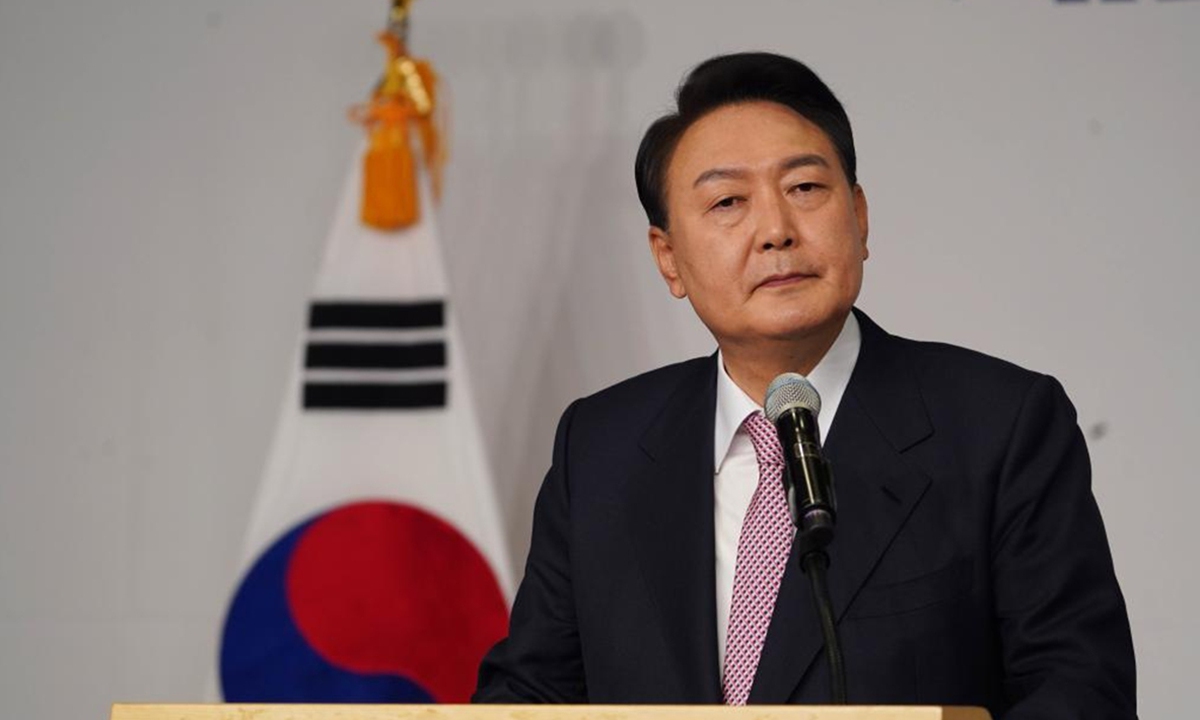
Yoon Suk-yeol File photo: Xinhua
South Korean police started dispersing supporters of Yoon by force near the presidential residence in central Seoul Thursday afternoon as part of efforts to proceed with the arrest warrant against him, Yonhap news agency reported.
The state anti-corruption agency is likely to execute the warrant to detain Yoon as early as Thursday, after the Seoul Western District Court granted it Tuesday over Yoon's short-lived declaration of martial law on December 3, according to Yonhap. The Corruption Investigation Office for High-ranking Officials (CIO), which is leading a joint team of investigators that include the police and prosecutors, has until January 6 to execute the arrest warrant.
Yoon has sent a letter rallying his supporters, saying he would "fight until the end" as he faces an attempt by authorities to arrest him, a lawyer said on Thursday, Reuters reported, noting that the opposition Democratic Party, which has majority control of parliament and led the impeachment of Yoon on December 14, said the letter proves that Yoon remains delusional and intent on continuing his "insurrection."
On the same day, at about 11:00 am local time, the ruling People Power Party received a fax threatening to plant explosives in its building from an unidentified person, Xinhua News Agency reported citing multiple media outlets.
South Korea's police special forces searched the building of the People Power Party in central Seoul following the bomb threat, but did not find any explosive device or materials. The police were investigating the fax sender and other details, per the Xinhua report.
Lü Chao, an expert on East Asian studies at the Liaoning Academy of Social Sciences, told the Global Times on Thursday that the issuance of the arrest warrant could trigger further disturbance in South Korean society.
"The issuance of an arrest warrant carries legal weight and can be enforced, meaning that the impeached President can no longer evade summons as before. This time, a forcible arrest may be executed," Lü stated, adding that if an arrest does take place, the entire situation could see significant changes, potentially resulting in further turmoil in South Korea.
The expert further noted that under these circumstances, South Korea's opposition and the ruling party are increasingly at odds, and there is a tense atmosphere among South Korean citizens regarding how the arrest warrant will be executed. "Therefore, if a situation arises where, as Yoon said, there is a 'fight until the end,' it could potentially lead to further unrest in South Korea, creating a possible state of division from the upper levels of the National Assembly down to the grassroots populace."
Separately, Yoon's impeachment trial is being heard at the Constitutional Court, which will hold the second hearing on Friday. If the court upholds Yoon's impeachment and removes him from office, a new presidential election will be held within 60 days, Reuters reported.




